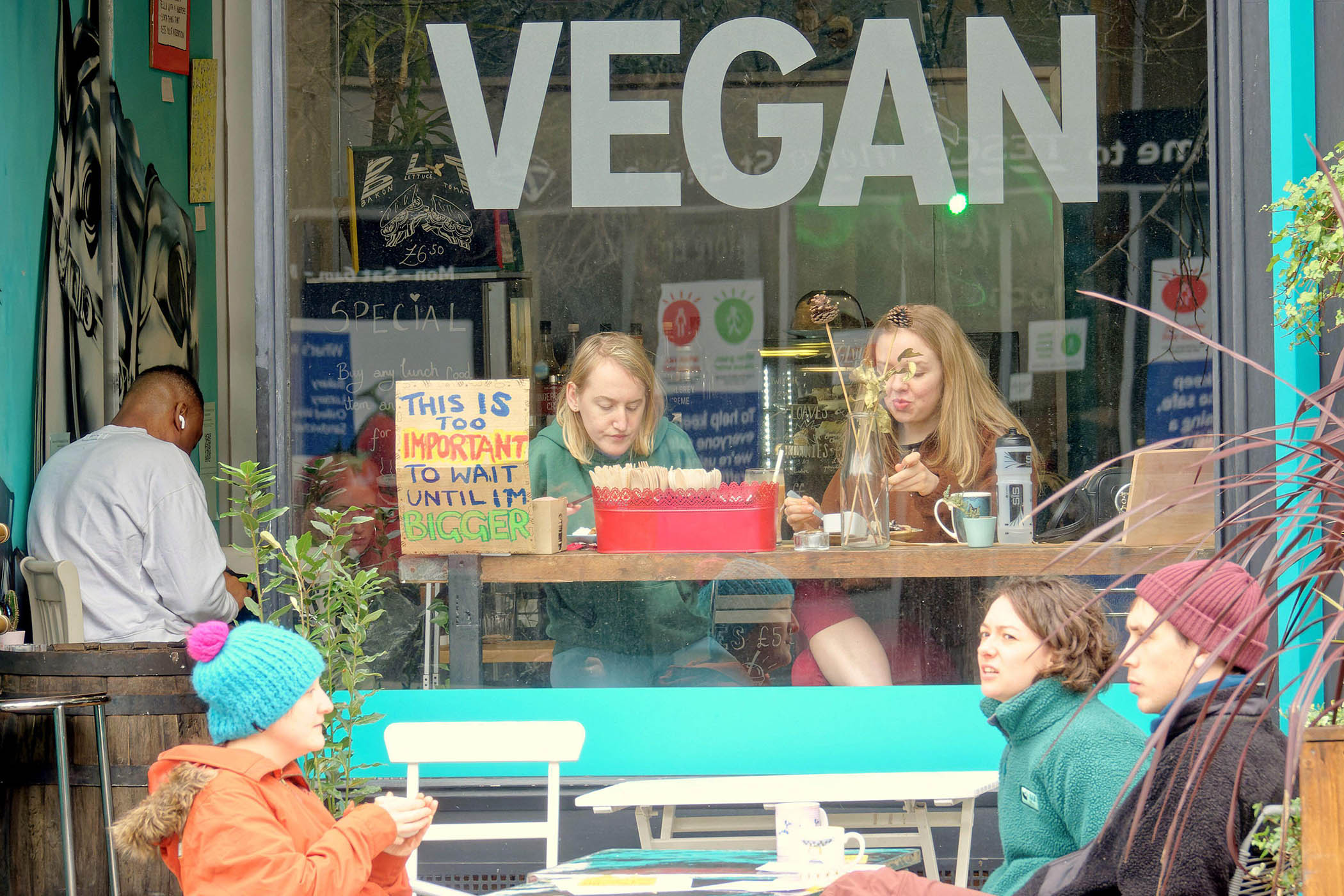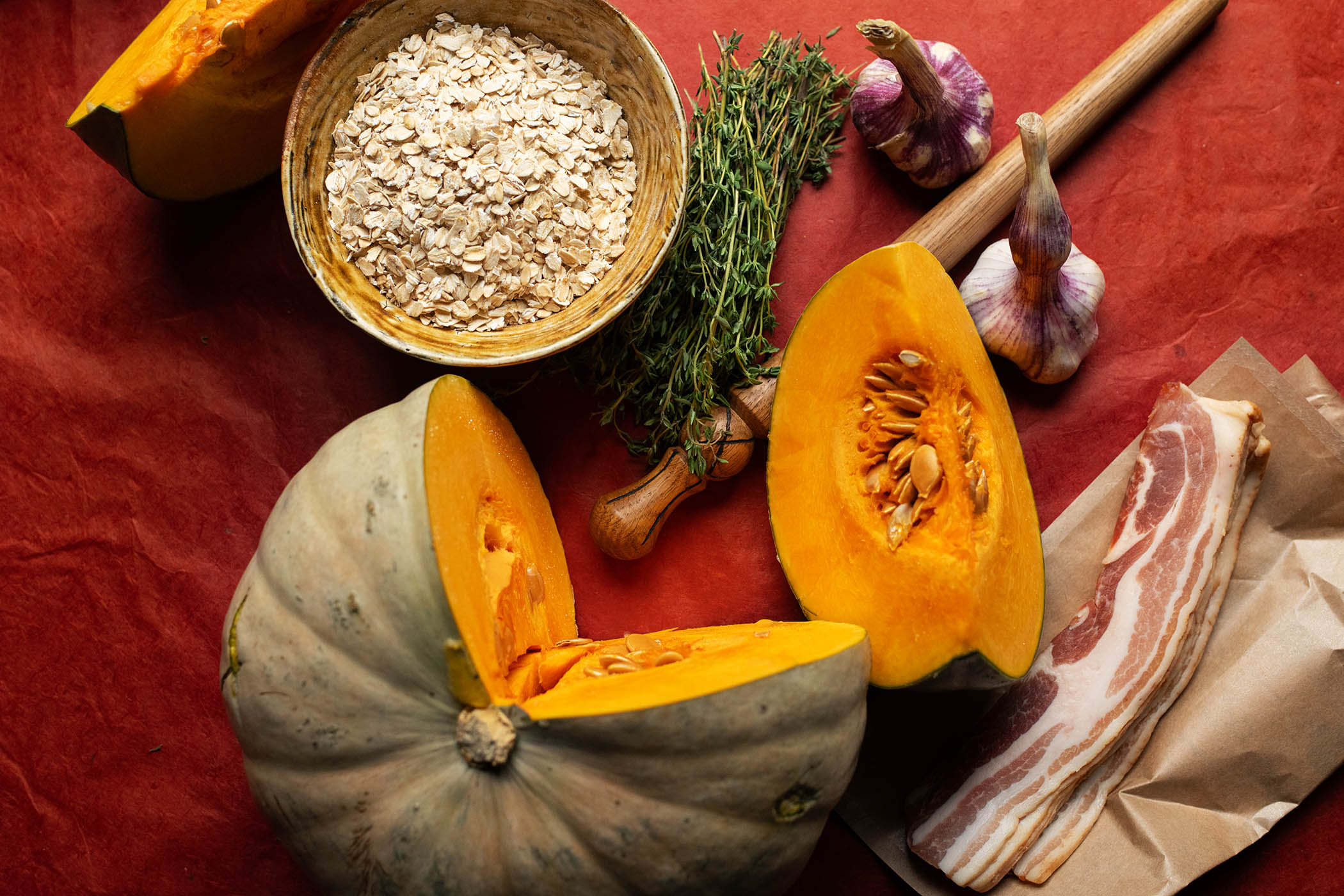After years of growth in the number of people calling themselves vegan and a boom in products and restaurants catering for them, some are shutting down, others are putting meat back on the menu, and the proportion of vegans in the UK has plateaued at 2%.
So what?
This could be peak veganism. If so, that would be good for the meat and dairy industries but bad for the environment. A 2023 study by researchers at Oxford University found that switching to a vegan diet from one that included more than 100g of meat per day would cut per capita climate-heating emissions by 75%, wildlife destruction by 66%, and water use by 54%.
Veganomics
In 2022 people consumed less meat than at any point since official UK records began in 1974. Meat is pricey and the cost-of-living crisis was thought to be a contributing factor.
Blame Putin, then? The Ukraine war was certainly behind the food price spike that year.
Vegans have tended to be better off than average in the US, but not in the UK. A 2022 YouGov poll found there were nearly twice as many American vegans earning double the median income as in the general population, whereas British vegans were over-represented in lower-income groups.
Tracking the trend
In 2006 there were only about 150,000 vegans in the UK. By 2018 this had increased fourfold, according to the Vegan Society. By the start of this year, that had more than tripled again to two million. And yet…
Three quarters of Britons now describe themselves as meat eaters – a slightly higher proportion than in 2019.
Elsewhere, meat production has continued to rise since the 1960s. Poultry is now the biggest meat source worldwide, overtaking pork for the first time a decade ago.
The UK bucked that trend slightly with a recent levelling-off in poultry and a fall in red meat production, but production of these meats and of dairy products is still higher than in 2011.
Anti-meat
The market for meat-free alternatives grew fast at least until Covid hit, offering meat-free burgers, sausages, bacon, fish, cheese and milk.
A report from the Good Food Institute showed that global sales of plant-based “meat” increased from $2.8bn in 2017 to $5.6bn in 2021. Top brands included Beyond Meat, Quorn and Tofurky.
Anti-anti-meat
A humble book threw a grenade into the plant-based food market in 2023. Chris van Tulleken’s bestseller Ultra-Processed People has made many people re-evaluate their diets, and many meat substitutes have come under scrutiny. Veggie burgers and sausages that emulate meat are generally made from plant proteins combined with fats, thickening agents, salt, preservatives and vitamins. Milk alternatives can contain sugars and flavourings.
A recent report suggested that half of Europeans are avoiding these products because they’re wary of ultra-processed foods. Italy moved to ban lab-grown meat in 2023 and, since 2017, terms such as “milk” and “cheese” can’t be used to market most vegan alternatives.
In the US, the Center for Consumer Freedom (CFF) has called plant-based meats “ultra-processed” in high-profile ads broadcast in big publications and even during the Superbowl. According to Bloomberg, CCF is a front for a conglomeration of tobacco, alcohol and meat companies.
Got milk
Dairy-free milks are a bigger success story. Vegans and the lactose-intolerant struggled to find oat, soy or nut milk in cafes and coffee shops a decade ago, but now those options are a menu staple. Their presence has been so normalised that in a survey earlier this year, 41% of British adults said it was unacceptable for coffee shops to charge extra for non-dairy milks. Globally, sales of plant-based milks were up from $15bn in 2017 to $17.8bn in 2021.
Meat as murder
“It’s not natural, normal or kind, the flesh you so fancifully fry,” Morrissey wrote in 1985, and it was hard to disagree. There are now more celebrity vegan role models than ever, with Ariana Grande, Romesh Ranganathan, Woody Harrelson and Fearne Cotton among them. Joaquin Phoenix used his 2020 Oscar acceptance speech to condemn dairy farming. Yet others are quitting – publicly. Miley Cyrus used an appearance on Joe Rogan’s podcast five years ago to reveal that she’d started eating fish again.
A flexitarian future?
The real story could be an increasingly flexible approach to our diets. It’s no longer black-and-white strict vegans v meat lovers. Instead people are looking to diversify their diets, cutting back on meat, introducing more vegetables, and trying vegan and vegetarian dishes both at home and when eating out.
A Vegan Society report in early 2025 said that 10% of people in Great Britain were cutting down on animal products, while this month Eating Better reported that 66% of people in the UK are open to eating less meat.
Less than what?
The Eating Better survey showed that 50% of Britons now eat meat fewer than four times a week.
Photograph by Gerard Ferry/Alamy Live News
Newsletters
Choose the newsletters you want to receive
View more
For information about how The Observer protects your data, read our Privacy Policy



